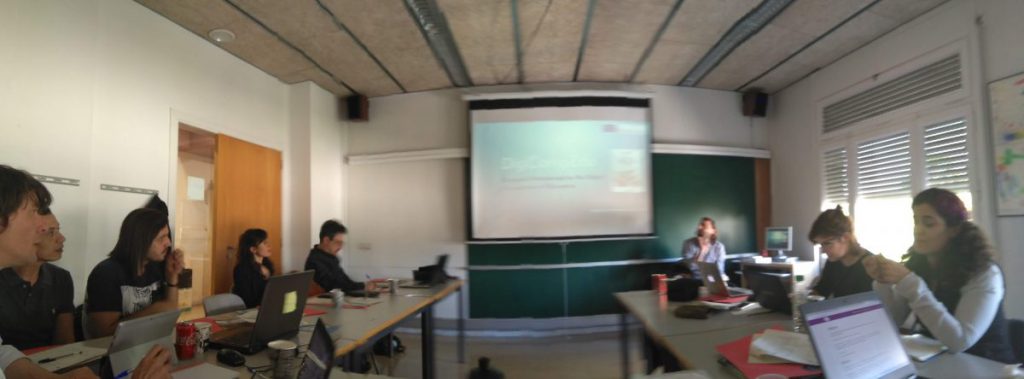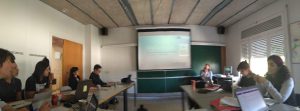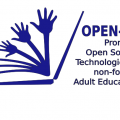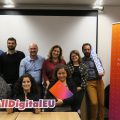
19 May Bridging the digital skills gap with FLOSS
19 May, 2019

The Open-AE: Promote open source technologies in non-formal adult education project (OPEN-AE) aims to train e-facilitators, animators and trainers in digital competence centres across Europe in using Free Libre Open Source Software (FLOSS) technologies for inclusion.
Partners and trainers met in Barcelona in the second week of May for the project meeting and training of trainers hosted by OPEN-AE partner and ALL DIGITAL member COLECTIC.
Prior to the meeting, the project partners conducted a desk research and focus groups with trainers to develop a curriculum that matches training needs of trainers with available open education resources.
The training was developed based on the results of focus groups with trainers working in digital competence centres in partner countries. Project partners learned how to take the most important elements of the free movement and open culture and learn how to adapt those values into their trainings. In this respect, trainers were not trained in how to teach a high-technical free software programme like Blender, but instead learned about free software culture, the challenges of closed and proprietary software, and free and open licenses. The training itself was developed by taking the best practices and challenges from each partner to co-learn and co-create a methodology and programme that can best support and transform digital competence centres to teach learners about the free software movement, migrate to free software and use free culture to create better services.
COLECTIC delivered some of their own experiences of completing a full-migration to free software and how they successfully train low-skilled learners using free software. Ynternet.org Foundation delivered a training on the free software movement, open licenses, slidewiki and the wikidata and Wikimedia projects.
The focus groups conducted by partners with trainers in the field earlier, provided a lot of insight into challenges when incorporating FLOSS options to training. The trainers and partners taking part in the OPEN-AE project primarily work with digitally excluded people who are trying to acquire skills to get access to services or to the labour market. Learners in such position are aware of the software and skills they need to learn; however, they may often tie these skills with a propriety software option. The challenge of an e-facilitator is answering the need of the learners with equivalent FLOSS options, while ensuring that the needs of the learner are still recognized. Bridging this gap proved one of the biggest challenges, which the Open-AE training tried to answer.
The training then focused on strategies, resources and best practices to address the learner’s needs. In order to guide this, a large portion of the training was devoted to the philosophy behind FLOSS and free culture. Supporting the “movement” is not exclusively with the use of Free and open software, there is the philosophy with ensuring content and creations can be freely shared.
Partners also had a chance to do some field trips to fablabs and the Colectic offices.









